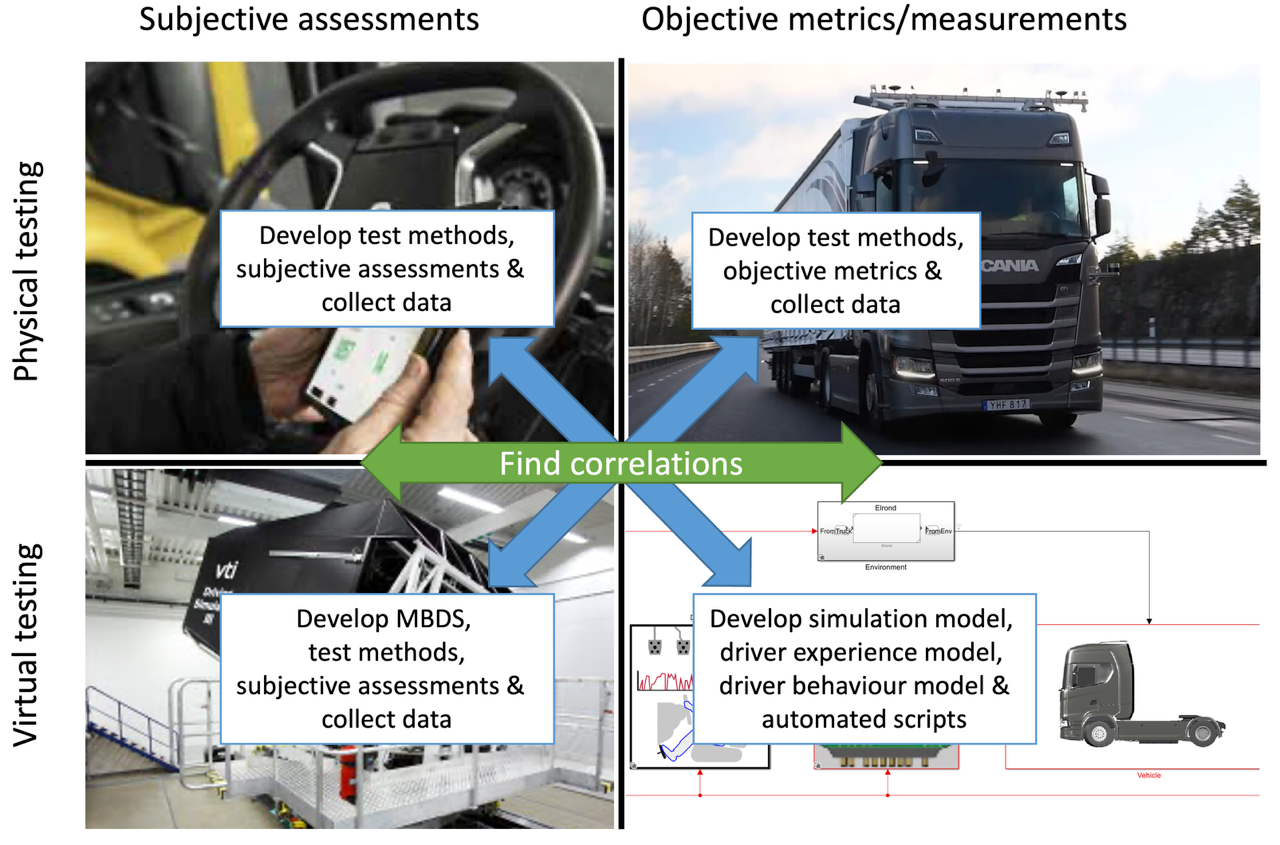PREDICTing and evaluating driveability and performance of zero emission heavy duty vehicles (PREDICT)

The PREDICT project aims to develop tools and methods for assessment of energy consumption and performance, as well as the driveability of new fossil-free powertrain concepts in the early stages of the development process. Driveability and understanding how it is affected is important, because the longitudinal motion control for efficient driving is not always a comfortable or natural behavior for drivers or passengers.
Background
The rapid technology development in electrification, automation and connectivity puts large strains on the developments process of new sustainable transport solutions. Especially for the heavy vehicle industry that in relation to passenger cars have a huge variation in vehicle functions and configurations. Thus, finding tools and methods to more effectively and efficiently develop new sustainable vehicles is of crucial importance for the competitiveness of Swedish vehicle industry. We need to move quicker in terms of transitioning to a sustainable fossil free transport system and hence we need to find ways to shorten time to market by being able to already in the early phase of the development predict certain vehicle characteristics.
Project description
This project aims to develop tools and methods to be able to assess the energy consumption and performance, as well as “driveability” of new powertrain concepts in early stages of development process. Driveability and the understanding of how it is impacted is particularly important here since the needed longitudinal motion control for efficient driving is not always comfortable or natural behaviour to drivers or passengers. The tools and methods developed can be used by heavy vehicle manufacturers as well as institutes and companies using moving base driving simulators.
To achieve this, we will in this project collaborate between four partners, Scania CV AB, VTI, KTH and LiU, who are experts in the areas of drivability assessment, moving base driving simulators and motion cuing, statistical and machine learning approaches for correlation studies and modelling and control of sustainable and automated vehicles. The project will fund two PhD students, their supervision as well as the extensive testing and experiments conducted with real vehicle, in moving base simulators as well as simulation environments.
Project goals
The project goals can be summarized as:
• Investigate driver behaviour to be used for development towards energy optimized automatic speed control (driver support and fully automated vehicles).
• Develop a methodology for using driving simulators in the development and assessment of future driveline concepts.
• Develop motion cueing strategies for improved longitudinal (and vertical) dynamics feedback to the driver/passenger in a moving-base driving simulator.
• Define drivability/rideability for future powertrains including subjective assessment criteria as well as objective metrics.
• Investigate the relationships and find key links between the driver's subjective assessment of drivability/rideability and related objective metrics.
• Develop models for driver behaviour as well as models for driver experience.
• Understand how energy saving control strategies affect the surrounding traffic behaviour and its energy efficiency.
• Train two doctoral students and increase competence in sustainable transport in Sweden.
• Increase knowledge in the field of transport research through scientific publications and presentations.

